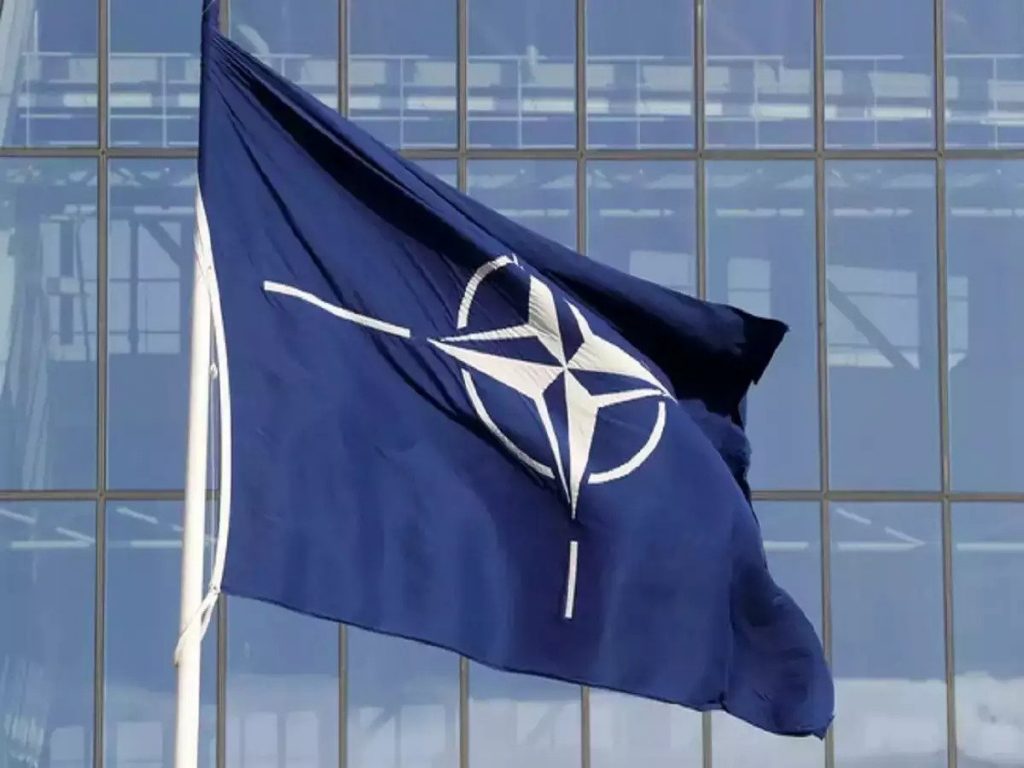The irony of Russian President Vladimir Putin’s decision to invade Ukraine in February is that the enemy he wanted to ward off from its border by declaring war against one country is now all set to come closer to its border because of that very invasion. The enemy is obviously NATO whose intention to give membership to Ukraine and thereby deploy its arsenal close to Russia’s border was Putin’s ostensible reason for invading the country. But, the havoc caused to Ukraine has so unnerved other neighbours that Finland and the country to its western border, Sweden, both democratic countries, have announced their eagerness to join NATO without any further delay. Traditionally, these two countries have always maintained neutrality, refusing to join either the US-led Western forces or the erstwhile Soviet Union or now Russia. Since the formation of NATO in 1949, these two neighbours of the former Soviet Union have been following independent policies.
Finland in particular has friendly relations with Russia which supplies to it 10 per cent of its energy needs. It has over 1,300-kilometer (810-mile) border with Russia, the longest by any European Union member. Sweden is not exposed to Russia in the same manner as Finland is, since Finland to its east acts like a buffer. But, Sweden often follows steps Finland takes to formulate its geopolitical strategy. The dramatic change of their position of neutrality has occurred the moment Russia invaded Ukraine. What has caused alarm bells in the two countries is the fact that Russia could actually invade Ukraine, a country with 44 million people, a GDP of 15,392 crore USD (2019), and armed forces of 200,000 active troops. Compared to Ukraine, Finland and Sweden are smaller countries.
Finland therefore is on the cusp of joining NATO within a few days, while Sweden is going to follow suit. Things have been moving fast for the past few days. Finnish President Sauli Niinisto told Putin May 14 his country “will decide to apply for NATO membership in the coming days.” He is one of few Western leaders who has held regular dialogue with Putin over the past ten years. In fact, at their first meeting in 2012 Niinisto made his stand clear that “each independent nation would maximise its own security.” That position, he told Putin this time, is still the case and that by joining NATO Finland will strengthen its own security and assume its responsibilities. It speaks volumes for the courage and foresight of the Finish President that he did not forget to tell Putin that despite its likely future membership in NATO, Finland wants to continue to deal with Russia bilaterally in “practical issues generated by the border neighbourhood.” He said he hopes to engage with Moscow “in a professional manner.” However meanwhile, Russian energy supplier RAO Nordic has announced it will suspend deliveries of electricity to Finland from Saturday, citing problems with payments.
Neighbouring Sweden is also moving with right earnest towards deciding on its position on NATO at a meeting of the ruling Social Democratic Party led by Prime Minister Magdalena Andersson scheduled May 15. In a highly significant move US President Joe Biden made a joint call May 13 with both Niinisto and Andersson where, according to a White House statement, he underscored his support for NATO’s Open Door policy and for the right of Finland and Sweden to decide their own future, foreign policy and security arrangements. Since the Russian invasion of Ukraine public support for joining NATO in Finland has gone up from around 30 per cent to nearly 80 per cent in some polls. The majority of Swedes also approve of their country joining the alliance, according to opinion polls there.
It appears the USA and the West have realised their mistake of dillydallying over the decision to accord NATO membership to Ukraine. For this, the US President has talked about an arrangement to provide security cover to Finland and Sweden during the ‘waiting’ period before they are inducted into NATO. It takes months before the crucial decision is taken with the concurrence of all the 30 members of the bloc. Turkey is reluctant to include the two countries into NATO for it suspects the two countries, which have a small segment of Kurds in their population, have been aiding and abetting militant Kurdish groups operating in Turkey against the current regime. It is yet to reveal the basis of its suspicion and for this it has indicated it is willing to talk to the top leadership of the two countries.
Viewed in the light of the latest developments, Putin’s adventure in Ukraine may prove too costly and counterproductive for Russia. Any country waging war today has to consider the aftermath of such a horrific military experiment. Whatever the final outcome maybe, it is evident that Ukraine has already won a war, the end of which is not visible to anyone. By lasting out from Thursday 24 February 2022 till now, in itself, is victory for a small country like Ukraine against a global military power. Putin has also thoroughly exposed the incapability of the Russian armed forces to achieve decisive victory in a short period of time. The world had forgotten the inefficient Soviet invasion of Afghanistan and how the Communist country was forced to run for its life, with some similarities to what happened to the Americans 15 August 2021. If Putin’s adventure fails, as it has started to look now, Russia might go through internal political changes that could affect the global geopolitical situation that has evolved lately, after the invasion of Ukraine.
